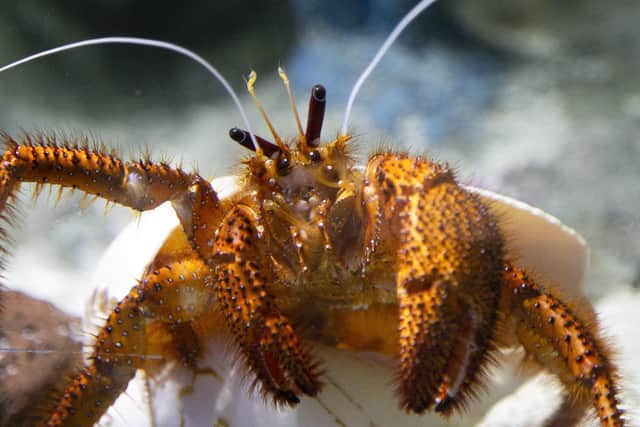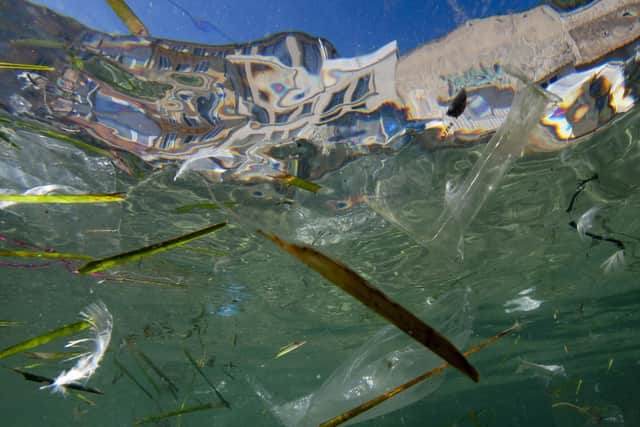Toxins released by plastic in the oceans are 'sexually exciting' hermit crabs, marine scientists at the University of Hull find
and live on Freeview channel 276
Scientists at the University of Hull have been studying the combined impact of climate change, plastic and other molecules on marine species.
The team has been looking into the effects of oleamide - an additive in plastic which is known to be a pheromone acting as a stimulant to certain species - on hermit crabs in Robin Hood's Bay on the Yorkshire coast.
Advertisement
Hide AdAdvertisement
Hide AdOnce detected, oleamide was found to increase the crabs’ respiration rate, indicating excitement.


Oleamide is sometimes mistaken by marine animals as food, attracting them with the promise of a meal only to discover plastic instead.
It is thought the toxic effect of additives may be amplified in a climate change scenario, while it was concluded the combination of warming oceans and plastic pollution was confusing some molluscs' breeding cycles and therefore impact on reproduction rates.
Concerns have been growing in recent years about the impact of the millions of tonnes of waste plastic and micro-plastics in the planet’s oceans upon marine life.
Advertisement
Hide AdAdvertisement
Hide AdPhD candidate Paula Schirrmacher, who led the research, said the research proved that hermit crabs are among the species attracted to the additive.


She said:“Respiration rate increases significantly in response to low concentrations of oleamide, and hermit crabs show a behavioural attraction comparable to their response to a feeding stimulant.
“Oleamide also has a striking resemblance to oleic acid, a chemical released by arthropods during decomposition.
“As scavengers, hermit crabs may misidentify oleamide as a food source, creating a trap.
Advertisement
Hide AdAdvertisement
Hide Ad“This research demonstrates that additive leaching may play a significant role in the attraction of marine life to plastic.”


Scientists in the Hull research team have also looked at the effect of plastic toxins on other molluscs, with male blue mussels found to have been mostly affected by increased temperature, while females were more sensitive to DEHP – a toxic chemical found in many plastics.
PhD student Luana Fiorella Mincarelli, who undertook the research on mussels, said: “It is critically important to understand how plastic additives work on molecular levels, especially on reproductive success."